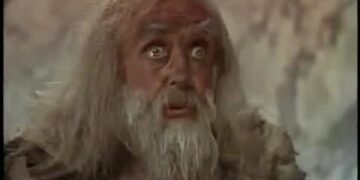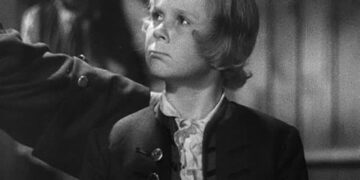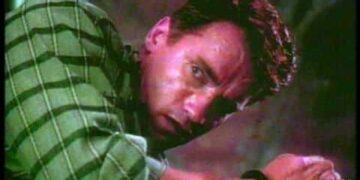“Oliver Twist” by Charles Dickens is an iconic novel that has captivated readers for generations. Published in 1838, this timeless classic tells the story of a young orphan named Oliver Twist who navigates the harsh realities of 19th-century London.
Dickens’ vivid descriptions and social commentary shed light on the inequalities and struggles faced by the lower classes during the Industrial Revolution.
In this article, we will delve into the essence of “Oliver Twist” by providing a comprehensive book summary and analysis, exploring its adaptations into film, discussing the historical context, examining the memorable quotes, and much more.
Book Summary and Analysis
“Oliver Twist” follows the journey of its eponymous protagonist, a young boy born in a workhouse and raised in a harsh orphanage. As Oliver grows older, he endures mistreatment and abuse, eventually escaping to London, where he falls in with a gang of child thieves led by the cunning Fagin.
Through a series of encounters, Oliver discovers his true identity and finds compassion and support from unexpected sources.
Dickens’ masterful storytelling exposes the dark underbelly of Victorian society, highlighting themes of poverty, crime, and social injustice. The novel’s vivid characters and intricate plot keep readers engaged from start to finish.
Dickens’ vivid descriptions of the grimy streets of London and the stark contrast between the wealthy and the destitute create a vivid backdrop for the story.
Movie Summary and Analysis
“Oliver Twist” has been adapted into numerous films, each offering its own interpretation of the beloved novel. One notable adaptation is the 2005 film directed by Roman Polanski. This cinematic rendition captures the essence of Dickens’ work, bringing the characters and settings to life.
The film stays true to the novel’s themes and delivers a visually stunning portrayal of 19th-century London.
When it comes to analyzing the movie adaptation, it is essential to consider the director’s choices in storytelling, cinematography, and casting. Roman Polanski’s direction ensures that the emotions and nuances of the characters are effectively conveyed on screen.
The film successfully captures the gritty atmosphere of the novel and provides viewers with a powerful visual representation of Dickens’ world.
When and Where “Oliver Twist” Takes Place and Film Locations
“Oliver Twist” is set in early 19th-century London, a time of great social and economic upheaval. The novel paints a vivid picture of the city’s grimy streets, workhouses, and slums.
The film adaptation of “Oliver Twist” also takes place in London, with the filmmakers carefully selecting locations that evoke the same sense of despair and grittiness. Some of the notable film locations include the historic district of Whitechapel and the atmospheric back alleys of Shad Thames.
Characters in “Oliver Twist”
“Oliver Twist” introduces readers to a multitude of memorable characters, each with their own unique traits and motivations. Oliver Twist himself is an innocent and kind-hearted young boy who faces numerous trials and tribulations.
Characters like Fagin, the manipulative leader of the child thieves, and the brash and violent Bill Sikes add depth and complexity to the story. Additionally, the compassionate Nancy, the enigmatic Mr. Brownlow, and the pompous Mr. Bumble all play integral roles in Oliver’s journey.
Memorable Quotes from “Oliver Twist”
“Oliver Twist” is filled with memorable quotes that encapsulate the essence of the novel. One such quote is, “Please, sir, I want some more,” which Oliver utters when asking for more food at the workhouse. This simple statement serves as a powerful representation of the hunger and desperation faced by the impoverished. Another poignant quote is, “We need be cautious how we deal with those about us when every death carries to some small circle of survivors thoughts of so much omitted, and so little done.”
The Soundtrack of “Oliver Twist” by Rachel Portman
The soundtrack of “Oliver Twist,” composed by Rachel Portman, beautifully complements the story and enhances the emotional impact of the film. Portman’s score captures the essence of Dickens’ world, with its sweeping melodies and melancholic undertones. The soundtrack perfectly encapsulates the mood of each scene, from the somber moments of despair to the triumphant instances of hope and redemption.
Curiosities and Fun Facts about “Oliver Twist”
“Oliver Twist” holds a myriad of curiosities and fun facts that add depth to the understanding of the novel. For instance, did you know that Charles Dickens was inspired to write “Oliver Twist” after witnessing the plight of child laborers in London? The novel’s success led to increased awareness and reforms addressing child welfare during the Victorian era. Additionally, the character of Fagin has been a subject of controversy due to its portrayal of anti-Semitic stereotypes.
Tips for Cosplay and Dressing like Oliver Twist and Mr. Bumble
For fans of cosplay and dressing up as characters from “Oliver Twist,” there are various tips and tricks to help you bring these beloved characters to life. To embody Oliver Twist, dress in worn-out clothing, complete with a tattered hat and fingerless gloves.
For Mr. Bumble, opt for a Victorian-era suit, complete with a top hat and a self-important demeanor. Pay attention to details like the characters’ hairstyles and accessories to create an authentic look.
Charles Dickens: A Biography and Overview of His 5 Best Works
To fully appreciate “Oliver Twist,” it is essential to understand the life and works of its esteemed author, Charles Dickens. Dickens was born in 1812 and went on to become one of the most celebrated writers of the Victorian era.
His works often highlighted social issues and the plight of the working class. Some of his other notable works include “A Tale of Two Cities,” “Great Expectations,” “David Copperfield,” “Bleak House,” and “A Christmas Carol.”
Roman Polanski and His 5 Other Media Works
Roman Polanski, the director of the 2005 film adaptation of “Oliver Twist,” is a prolific filmmaker known for his distinctive style and storytelling. In addition to “Oliver Twist,” Polanski has directed several other notable films, including “Rosemary’s Baby,” “Chinatown,” “The Pianist,” “Repulsion,” and “The Ghost Writer.”
Each of these works showcases Polanski’s ability to engage audiences with his unique visual aesthetic and compelling narratives.
10 Similar Movies to “Oliver Twist”
If you’re a fan of “Oliver Twist” and are looking for similar movies to explore, here are ten recommendations that capture the essence of Dickens’ masterpiece:
- “Great Expectations” (1998)
- “Nicholas Nickleby” (2002)
- “Jane Eyre” (2011)
- “Les Misérables” (2012)
- “Oliver!” (1968)
- “The Count of Monte Cristo” (2002)
- “The Hunchback of Notre Dame” (1996)
- “Anna Karenina” (2012)
- “The Secret Garden” (1993)
- “Little Dorrit” (2008)
5 Other Works by Charles Dickens
In addition to “Oliver Twist,” Charles Dickens has penned several other notable works that are definitely worth exploring. Here are five recommendations to broaden your Dickensian horizons:
- “A Tale of Two Cities” (1859)
- “Great Expectations” (1861)
- “David Copperfield” (1850)
- “Bleak House” (1853)
- “A Christmas Carol” (1843)
Book Club Discussion Questions for “Oliver Twist”
For those who wish to delve deeper into the themes and nuances of “Oliver Twist,” here are ten book club discussion questions to spark meaningful conversations:
- How does Dickens use his characters to critique the social and economic disparities of 19th-century London?
- Discuss the role of the workhouse in the novel and its impact on Oliver’s life.
- What do you think Dickens is trying to convey through the character of Fagin?
- Analyze the symbolism of the city of London in “Oliver Twist.”
- How does Dickens explore the themes of poverty and social injustice in the novel?
- Discuss the moral journey of Oliver Twist throughout the story.
- What role does the character of Nancy play in the narrative, and how does she challenge societal expectations?
- Examine the portrayal of childhood innocence and corruption in the novel.
- How does Dickens use humor to address serious social issues in “Oliver Twist”?
- Discuss the significance of the ending and Oliver’s ultimate fate.
10 Similar Novels with Similar Plots to “Oliver Twist”
If you enjoyed the plot of “Oliver Twist” and are looking for similar novels to dive into, here are ten recommendations that explore similar themes and settings:
- “Jane Eyre” by Charlotte Brontí«
- “Les Misérables” by Victor Hugo
- “David Copperfield” by Charles Dickens
- “Nicholas Nickleby” by Charles Dickens
- “Little Dorrit” by Charles Dickens
- “Great Expectations” by Charles Dickens
- “Moll Flanders” by Daniel Defoe
- “Vanity Fair” by William Makepeace Thackeray
- “The Adventures of Huckleberry Finn” by Mark Twain
- “Wuthering Heights” by Emily Brontí«
Buying Guide and Gift Ideas for “Oliver Twist” Fans
For avid fans of “Oliver Twist,” here is a buying guide and a list of gift ideas to enhance your reading experience:
- “Oliver Twist” Deluxe Edition: Consider purchasing a beautifully bound deluxe edition of “Oliver Twist” to add to your collection.
- “Oliver Twist” Film Adaptation DVD: If you enjoyed the movie adaptation, owning a DVD copy allows you to revisit the story whenever you please.
- Charles Dickens Biography: Learn more about the life and works of Charles Dickens with a comprehensive biography.
- Victorian London Guidebook: Immerse yourself in the world of “Oliver Twist” by exploring Victorian London through a guidebook.
- “Oliver Twist” Poster: Decorate your walls with a stunning poster featuring artwork inspired by “Oliver Twist.”
- “Oliver Twist” T-Shirt: Show off your love for the novel with a stylish t-shirt featuring iconic quotes or imagery from “Oliver Twist.”
Conclusion
“Oliver Twist” remains a timeless classic that continues to enthrall readers and viewers with its compelling narrative and thought-provoking themes.
Charles Dickens’ vivid portrayal of 19th-century London, coupled with his memorable characters, has solidified the novel’s place in literary history. Whether you choose to delve into the pages of the book or explore its various adaptations, “Oliver Twist” promises an immersive and impactful experience.
So immerse yourself in the world of Oliver Twist and discover the enduring essence of this literary masterpiece.













